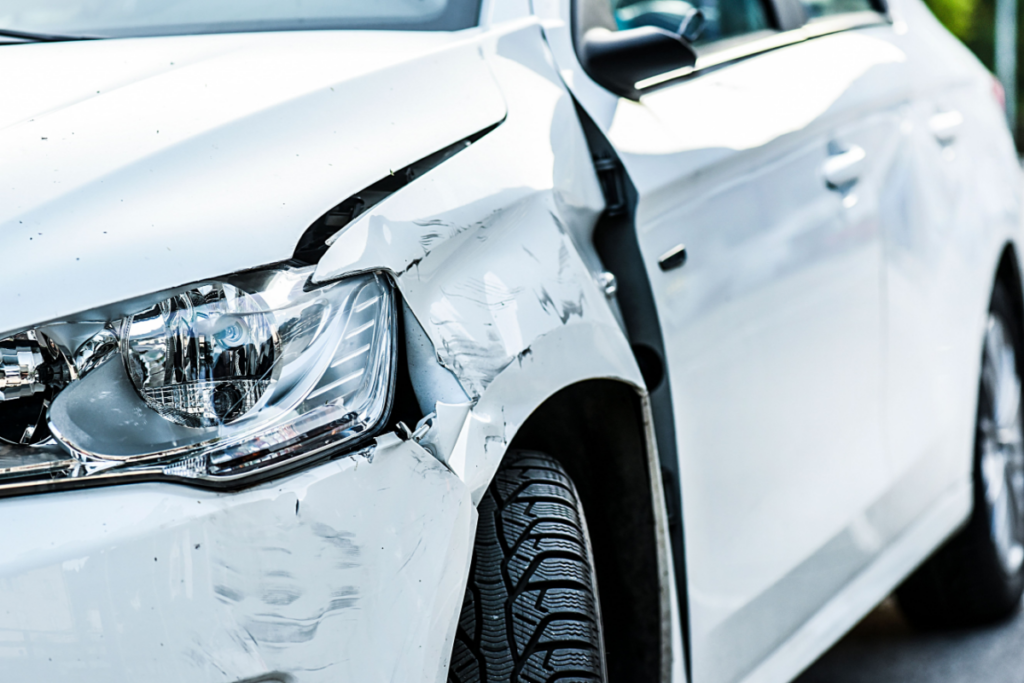Motor vehicle accidents can be a traumatic experience for those involved, resulting in injuries, property damage, and emotional distress. In New South Wales (NSW), people who are injured in motor vehicle accidents may be eligible for compensation.
Compensation is designed to ensure that people receive the support they need to recover from their injuries by providing personal injury benefits; but what does a compensation payout include?
Compensation payouts for motor vehicle accident claims in NSW can vary depending on a range of factors, including the severity of the injuries sustained, the circumstances of the accident, and the individual’s age and occupation. According to recent statistics, in the 12 months to January 2024, there were 12,398 motor accident injury claims reported in NSW, and $1.35 billion was paid out in benefits and lump sums.
To maximise the compensation you are entitled to in a motor vehicle accident claim, you should contact a firm specialising in personal injury law. Working with an experienced team will help you to achieve the best outcome possible.
Eligibility Criteria for Compensation
Residency and Accident Location Requirements
To be eligible for motor vehicle accident compensation payouts in NSW, the injured party must be a resident of New South Wales or the car accident must have occurred within the state’s borders. If the accident happened outside of NSW, the victim may still be eligible for compensation if the accident involved a vehicle registered in NSW.
Time Limits for Filing Claims
There are strict time limits for filing a claim for motor vehicle accident compensation in NSW. Generally, a claim must be filed within three months of the accident. If you do not submit and application for personal injury benefits within this time, your claim will be considered a late claim and a full and satisfactory explanation for the delay must be provided.
Claim Process Overview
The process of filing a claim for motor vehicle accident compensation in NSW involves several steps. The injured party must report the accident to the police and their insurance company. They must then seek medical treatment for their injuries and gather evidence to support their claim, such as witness statements and medical reports. Once the evidence has been gathered, the injured party can file a claim with the Compulsory Third Party (CTP) insurer of the at-fault driver. The CTP insurer will then investigate the claim and decide on whether to accept or deny liability for the claim. If the claim is accepted, the injured party may be entitled to compensation for their medical expenses, lost wages, and, in some circumstances, non-economic loss damages, pain and suffering.
It is important to note that the amount of compensation awarded will vary depending on the circumstances of the accident and the severity of the injuries sustained. It is recommended that injured parties seek the advice of a qualified legal professional to help them navigate the complex process of filing a motor vehicle accident compensation claim in NSW.
GET HELP NOW WITH YOUR PERSONAL INJURY
Get in touch with our Personal Injury Compensation team
Types of Compensation Available
Claims for benefits and damages (compensation) in NSW are governed by the Motor Accidents Injuries Act 2017 (NSW) (‘the Act’).
The Act commenced on 1 December 2017 and provides for a hybrid scheme of both statutory benefits (regardless of fault), and a restricted ability to claim damages (subject to establishing fault of the other driver).
The Act was amended recently, with these amendments impacting motor accidents that happened on or after 1 April 2023.
The types of compensation available to you will depend on the circumstances of your accident and the extent of your injuries.
Statutory benefits
The statutory benefits scheme covers weekly benefits (payments for the loss of wages) and medical expenses for treatment and care (including commercial care). Gratuitous care, that is, care generally provided by friends or family without payment, is no longer covered under the Act.
Statutory benefits are payable to most persons injured due to a motor accident, regardless of whether or not they are at fault for up to 52 weeks.
Damages Claim
The Act makes further provision for an injured person to bring a claim for damages (compensation) arising from injuries suffered in the subject accident if their injury is deemed not to be a threshold injury.
It must be noted that this is a separate claim from a claim for statutory benefits, and as such, a new liability decision will need to be made by the insurer, along with a new assessment of contributory negligence if applicable
Medical Expenses
One of the most significant types of compensation available is medical expenses. This can include reimbursement for any treatment expenses you have already incurred and future medical expenses related to your injury. This can include things like doctor’s visits, hospital stays, surgery, medication, and rehabilitation.
Loss of Income
If your injuries prevent you from working, you may be entitled to compensation for loss of income. This can include wages you have already lost due to your injury, as well as future income you will be unable to earn because of your injury.
Pain and Suffering
Compensation for pain and suffering (non-economic loss damages) is also available for those who have been injured in a motor vehicle accident. This is a type of compensation designed to compensate you for the pain and suffering you have experienced as a result of your injuries.
To be awarded compensation for non-economic loss, you must be assessed by an independent medical practitioner as having greater than 10% (i.e. at least 11%) whole-person impairment (WPI). This assessment can only occur once your injuries have stabilised and have reached maximum medical improvement, to fully ascertain the extent of injuries and their impact on your life.
Home Modification Costs
If you have been injured in a motor vehicle accident and require modifications to your home, you may be entitled to compensation for these costs. This can include wheelchair ramps, handrails, and other modifications that make your home more accessible.
Domestic Assistance
An injured person may also be entitled to domestic assistance, depending on the nature of their injuries and recovery.
What to Expect If Your Motor Vehicle Accident Compensation Claim is Successful
If you have been involved in a motor vehicle accident in NSW and have successfully made a compensation claim, there are several things you can expect to happen. Here are a few key things to keep in mind:
Compensation Limits for Motor Vehicle Accident Compensation Payouts in NSW
The amount of compensation you receive for your motor vehicle accident will depend on a number of factors, including the severity of your injuries, the impact that the accident has had on your life, and the costs you have incurred as a result of the accident. To better understand what you may be entitled to, it’s best to discuss the circumstances of your cases with an experienced personal injury lawyer.
Legal Representation and Costs
Most lawyers will work on a no-win, no-fee basis, meaning they will only charge you if your claim is successful. However, if your claim is successful, you will be required to pay your legal fees out of your compensation payout.
If you have been involved in a motor vehicle accident in NSW and are considering making a compensation claim, seeking legal advice as soon as possible is essential. A lawyer can help you navigate the complex legal process and ensure that you receive the compensation you are entitled to.
Key Takeaways
- In NSW, motor vehicle accident compensation covers personal injury benefits to support recovery.
- Compensation varies based on injury severity, accident circumstances, age, and occupation.
- Eligibility requires being a NSW resident or having an accident within NSW.
- Claims must be filed within three months of the accident.
- The claims process includes reporting the accident, medical treatment, evidence gathering, and filing with the at-fault driver’s CTP insurer.
- Compensation can include medical expenses, loss of income, and pain and suffering.
- Non-economic damages require assessment of over 10% whole-person impairment.
- Recent amendments to the Motor Accidents Injuries Act 2017 affect accidents after 1 April 2023, influencing compensation types and entitlements.
Burke Mead Lawyers are Experienced Personal Injury Lawyers in NSW
If you believe you are eligible to make a compensation claim, you should seek the advice of an experienced personal injury lawyer – contact BurkeMead Lawyers to discuss your unique circumstances and potential compensation outcomes.


